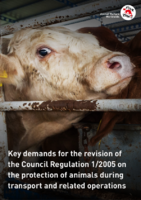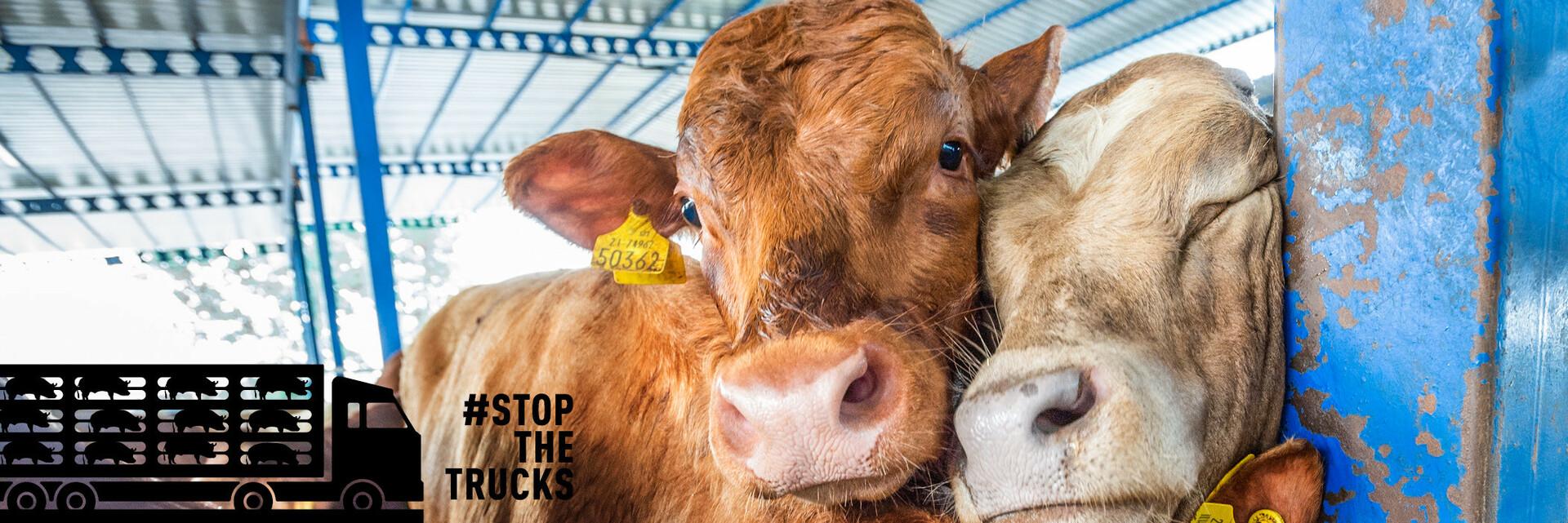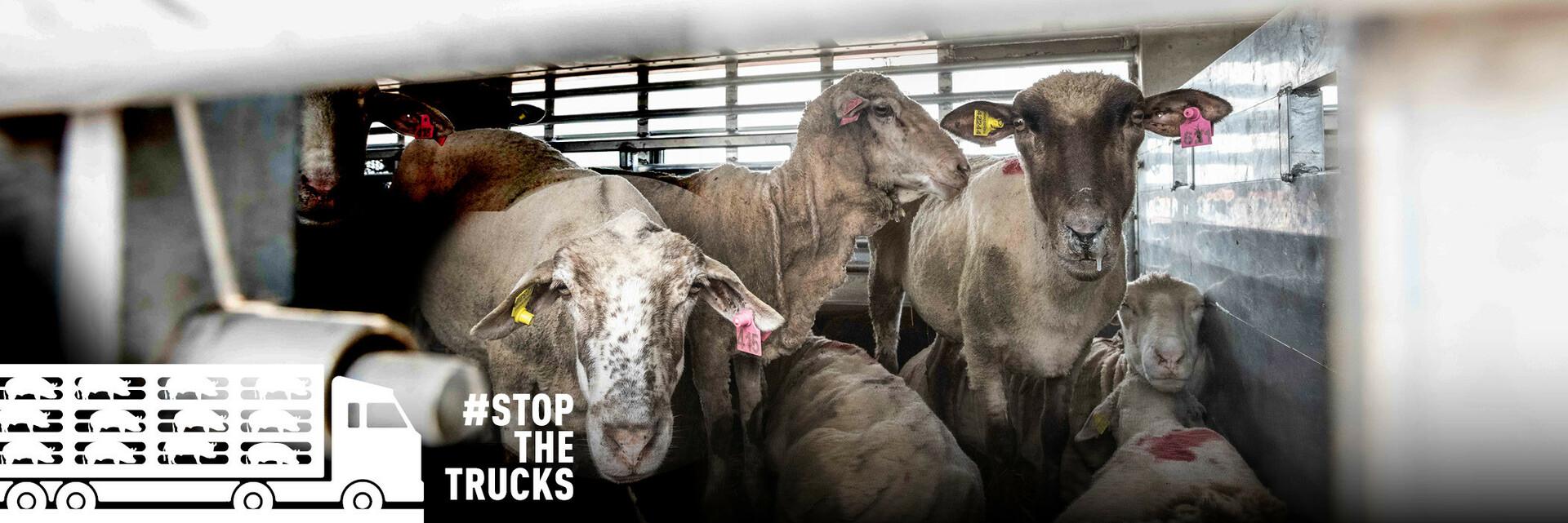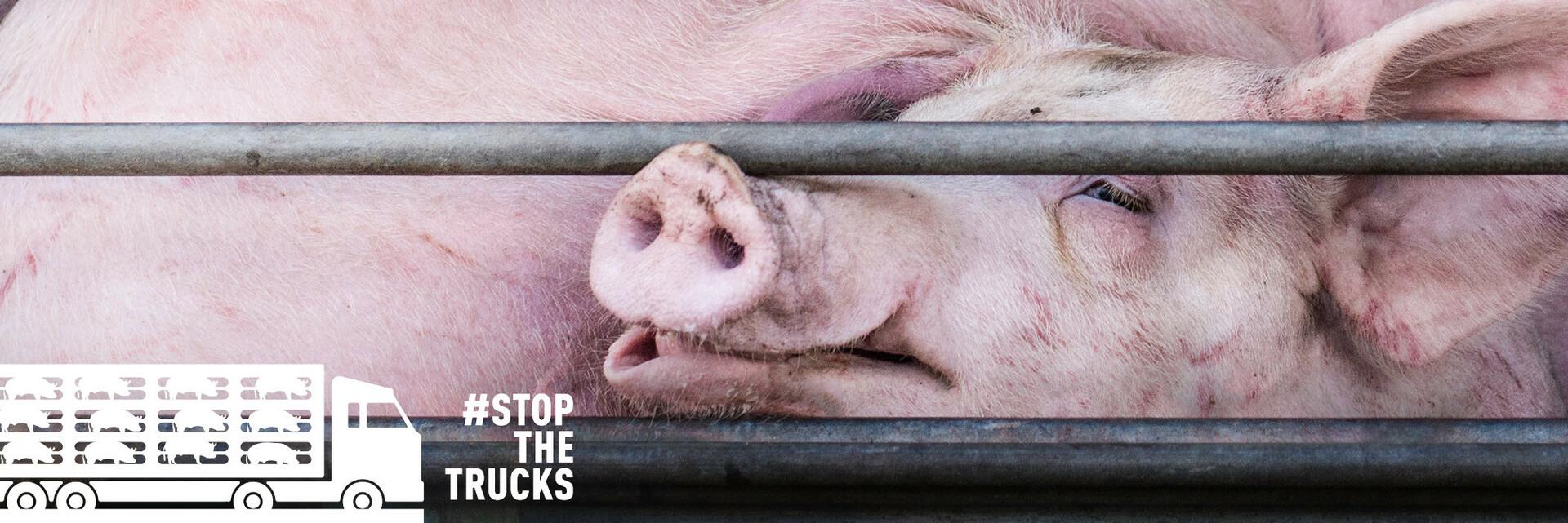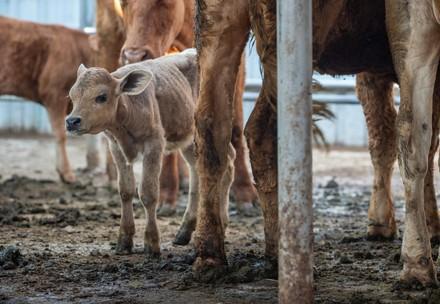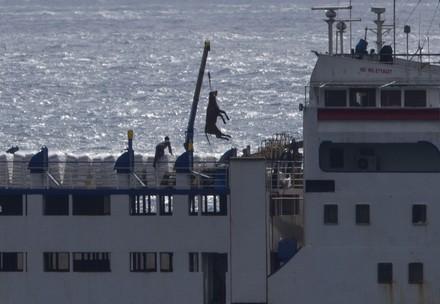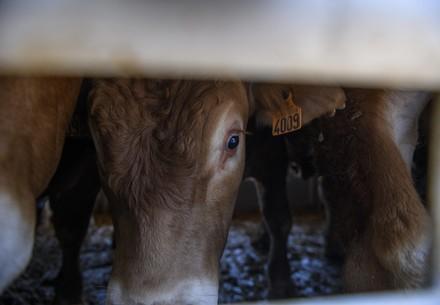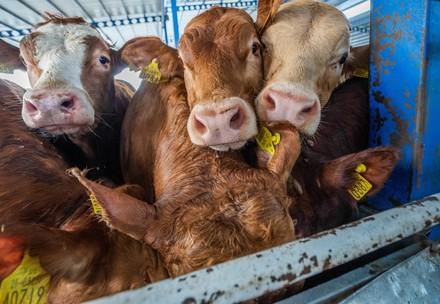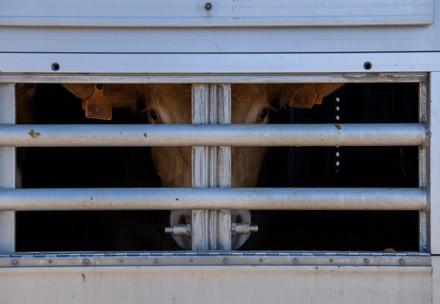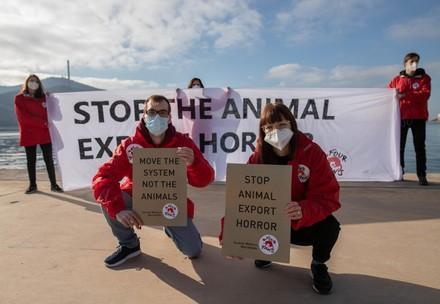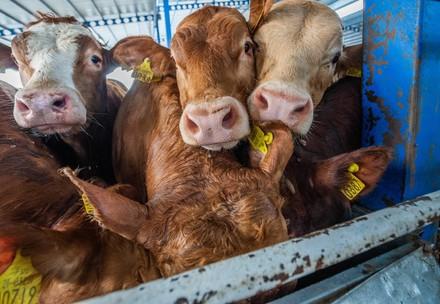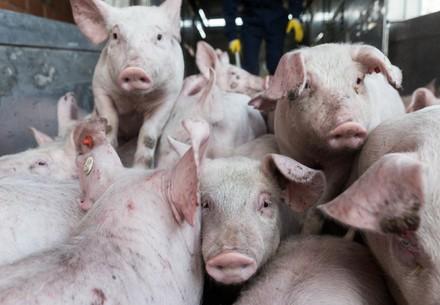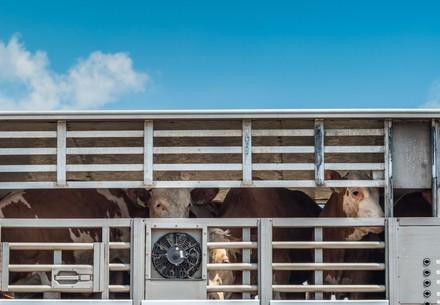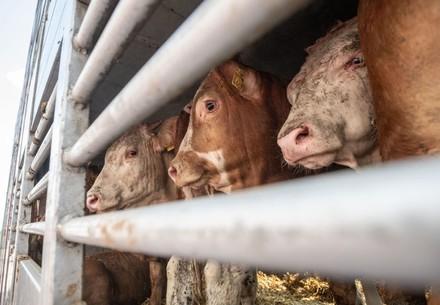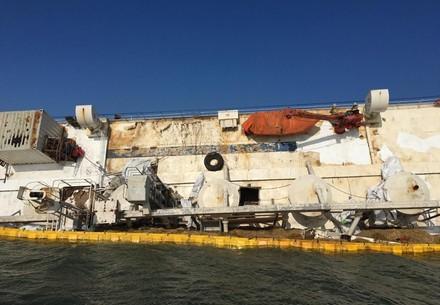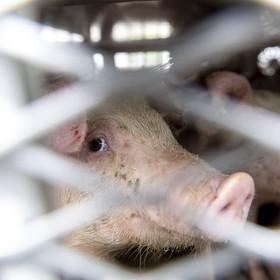In particular, animals destined for slaughter are often transported for several days and weeks in disastrous conditions. Numerous animals sustain serious injuries and regularly animals die a torturous death during the journeys. Also, animals destined for breeding purposes are transported and suffer from terrifying conditions on these journeys that often last several days and even weeks.
In addition, many animals are bred, reared, and slaughtered in different locations, resulting in several journeys that an animal has to undergo during its life.
The following grievances are regularly taking place during long distance live animal transports on the road:
- The maximum loading density is exceeded and does not allow animals to rest in a normal position.
- Insufficient height inside vehicles, especially during the transport of cattle in double-decker trucks.
- Permitted transport time is exceeded and legally required resting stops are not taking place.
- Unsuitable loading ramps (e.g. too steep, slippery).
- Transport vehicles lacking suitable equipment for feeding and watering (esp. when transporting young, un-weaned animals).
- Transport of animals being unfit for transport (sick animals and such with broken limbs), transport of highly pregnant animals.
- Fights between animals originating from different stables within the vehicles.
- Rough handling of animals during loading and unloading, leading to fear and serious injuries of the animals.
- Poorly trained staff, badly paid drivers, reckless driving.
- Missing control posts (resting stations) in other countries to enable legally required resting intervals.
- Temperature limits within the vehicle are exceeded (> 77°F & < 41°F), the animals suffer from heat and cold, numerous animals die of heatstroke or freeze to death.
- Empty or frozen water supply leads to severe suffering and deaths.
